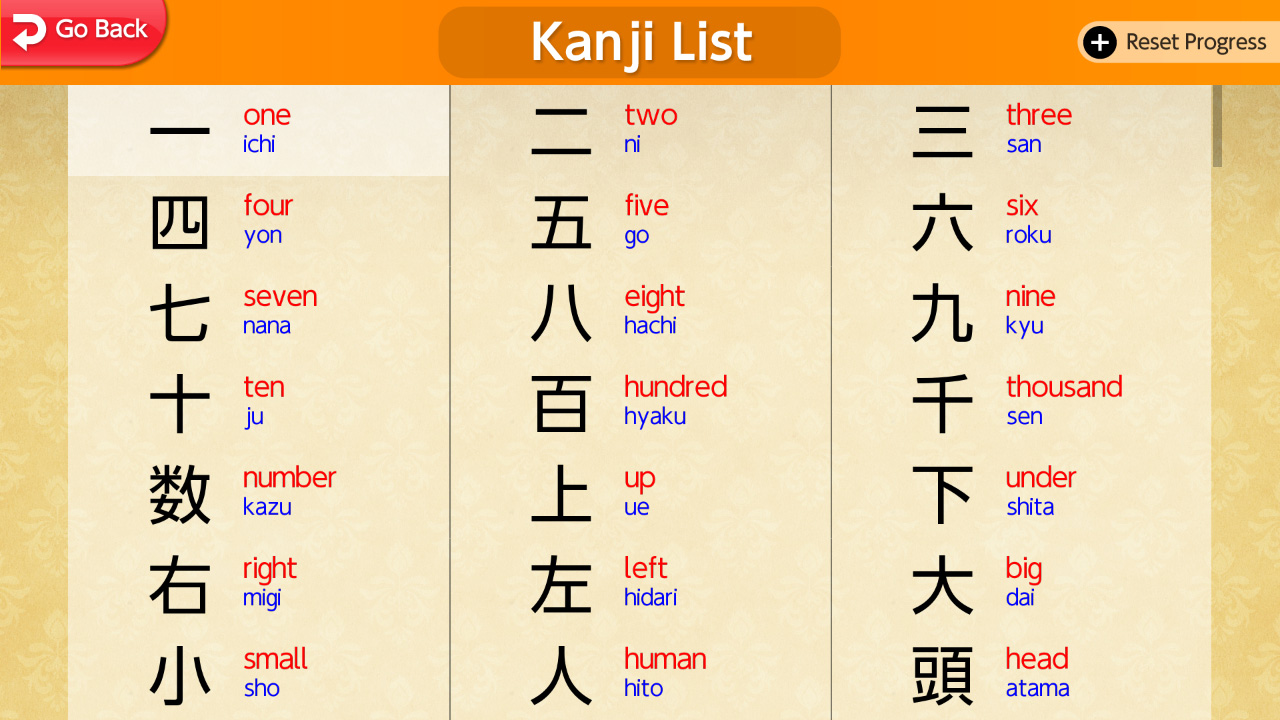
Kanji Meaning: 漫 (まん) means “random” or “uncontrolled,” and 画 (が) is “picture.” This rich, strong rice wine is often described in English with its original Japanese word. The businessman’s best friend and an essential addition to your “new experiences” to try in Japan. Kanji Meaning: 酒 (さけ) literally means “alcohol.” Add お at the beginning of the kanji (お酒) to describe any alcoholic drink.Īah, sake. Karaoke is an entirely different experience in Japan, and can be enjoyed alone, as a small group of friends or, similar to Western style, with loud and drunken strangers. Follow the katakana to the letter (literally). Pronunciation Tip: Forget everything you know about the English pronunciation of this word, as I’m afraid we’ve butchered it. However, the word originally came from the kanji 空 (から), meaning “empty,” and the katakana オケ, coming from the English “orchestra.” So, if you think about it, “karaoke” is an English word adopted from Japanese, but which originally had influences from English-or from Greek, if you want to get really linguistically fancy. Kanji Meaning: As seen above, “karaoke” is now usually written in katakana in Japanese, such as on signs and buildings. A lot of popular recreational activities actually originated in Japan. Now we’ll steer away from these dangerous events and into something more fun. We commonly use the Japanese word to describe these devastating natural disasters in English. Unfortunately, Japan has had more than its fair share of tsunamis (or “tidal waves”). Pronunciation Tip: In Japanese, the t is pronounced, unlike in English. Kanji Meaning: 津 (つ) is “harbor” or “port,” and 波 (なみ) means “wave.” Typhoons are common during late summer and early autumn in Japan, often causing minor damages in the southern Okinawa islands and disrupting transportation in large cities. Kanji Meaning: 台 (たい) means “table” or “pedestal,” and 風 (ふう) means “wind.” Japan tends to be on the dangerous side when it comes to the weather, so it isn’t surprising that these first two words came from Japanese and were incorporated into English. (Download) 32 Cool Japanese Loanwords We All Use in English
#Conji in english pdf
This blog post is available as a convenient and portable PDF that youĬlick here to get a copy.

#Conji in english how to
You already know the meanings and how to say them-add the full Japanese knowledge, and you’ll be 32 words closer to mastering this difficult but fascinating language! Some Japanese pronunciation tips are also included, as the pronunciation of the original Japanese words can sometimes differ from that of the adapted English versions. It’s interesting to see how logical the original character’s form usually is, which makes the words altogether easier to remember. The original Japanese word, usually written in kanji, is included for each loanword (plus hiragana in parentheses, for easy reading). Here, we’ll introduce you to 32 words we use in English that you may not know come from Japanese. Japanese words are everywhere in the English language, and being able to identify them enlightens you to a base knowledge of Japanese that you didn’t even know you had.įor instance, did you know the word tsunami, sometimes called a “tidal wave,” is of Japanese origin?

I wrote a haiku about shamisen music while cuddled up in my futon eating teriyaki chicken. Decem32 Cool Japanese Loanwords We All Use in English


 0 kommentar(er)
0 kommentar(er)
